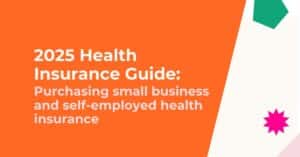This is an excerpt from our weekly newsletter. To get other timely tips and inspiration, make sure you’re on the list: www.thejilljames.com/newsletter
I’m just Ken (and I’m enough), and I’m great at doing stuff
Yes, I am still laughing from the Barbie movie. Feeling all the Ken-ergy. Wishing more people lost interest in the patriarchy when they found out it wasn’t about horses. Wondering how Mattel so drastically underestimated the demand for these sweatshirts.
The Barbie movie’s opening weekend box office was $155 million in the US, the largest ever for a female-directed film (ahead of Captain Marvel and Wonder Woman), and $337 million globally. It’s the largest ever US opening for a comedic film and a non-franchise film.
Remember a few weeks ago, when I wrote about the wealth shift to women? This is what that looks like. A fun, enjoyable product distinctly and unapologetically developed for a majority female audience.
I haven’t engaged with the Barbie brand much in the last 14 years, since I was an account director at an agency that did creative and media buying for Mattel. I was shocked at the brand evolution.
I worked with the brand in 2008-2009 for Barbie’s 50th anniversary. Sending out wellness checks to that team, because this movie might have killed them. When you see people say things like, “My take was Greta will never get them to sign off on this script,” I 100% agree.
In the mid-aughts, working with Barbie was a list of what not to do. As the top earning brand, Barbie came with a large, risk-averse brand team. Suggesting even small changes to brand guides led to a swift and punitive discussion of whether you really “got” Barbie. Because you had to “get” Barbie at an atomic level. (Yes, that’s a Barbenheimer joke.)
Ours was the first agency team dedicated to Mattel’s digital brand marketing. Let’s just say, the budget relative to goals was definitely not Kenough. While we eventually got signoff to create a first person speaking voice and Facebook page for Barbs, the decisions were tortured.
If you’re a progressive thinker working in a B2B context with an established brand, you may find yourself frustrated. Often, brands don’t take risks until they’re well into failing. (This is also how women and members of historically marginalized groups end up in charge – it’s called the glass cliff.) Perhaps this is how Mattel found itself with an outsider CEO from entertainment in 2018, after years of sales declines and struggle to compete with Hasbro’s toys plus movies success.
So what are the lessons for us, small business owners?
If you’re a consultant, once in a while, an established brand will take a true risk like the Barbie movie or a novel strategy. But most of the time, they won’t. They need profitable lines that provide significant contribution. Understand what your client’s comfort zone is and be realistic in how far you can push them.
On the product side, large brands’ risk aversion leaves interesting and lucrative market gaps, especially in emerging categories. With design, manufacturing, marketing, and distribution costs and shareholder requirements, Mattel can’t make toy lines that gross under $4-5 million per year. (And those are teeny tiny and get limited support.) And those brands from Day 1 must follow a playbook that supports boxes of plastic stuff in stock at your local big box store.
That leaves ample space and millions of dollars for your idea. If it’s outrageously successful, an established company will buy it from you, because you’ve de-risked it. If it’s merely successful, you can carve out a nice niche for yourself in the high six to eight figures with great profits.
Do not sleep on these economic shifts. There are large and growing underserved markets who want something different.
Get experience now and establish relationships.



